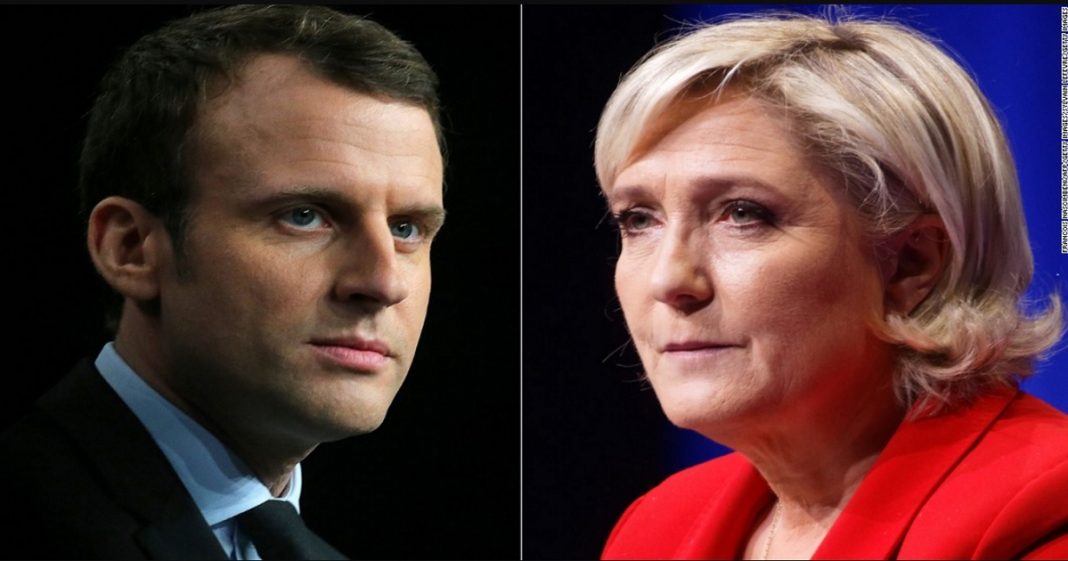This week, nationalist right-wing populist Marine Le Pen came a step closer to becoming the first female President of France. However, her gender is not nearly as significant as is the possibility that she will be that country’s first far-right President, should she win the run-off election over moderate centrist Emmanuel Macron.
Marine Le Pen’s rise to power in France has had some parallels to that of Donald Trump here at home. It has been steady and inexorable – and fed by a combination of resurgent nationalism, racism, and increasing xenophobia. Trump’s questionable election has encouraged Le Pen’s ambitions, along with Britain’s exit from the European Union. Her base is made up primarily of low-information voters and those further from urban centers. However, she has also gained support from the military and law enforcement, and is making inroads among other public servants – who were at one time firmly against the kind of right-wing extremism Le Pen represents. Like Trump and his followers, she portrays Islam as the country’s most dangerous threat. She’s also a pal of Vladimir Putin.
Of course, in a country where the Nazi occupation of World War 2 is still within living memory, Le Pen prefers to avoid the appellation of “far right.” In fact, her own party, National Front Party (Front National, or FP), was founded in 1972 by former Vichy collaborators. However, in a country where 230 deaths have resulted from terrorist attacks and three million people remain unemployed, her message is finding a growing number of willing ears.
Still, French pundits and pollsters are saying that she is unlikely to win that country’s elections, scheduled for May 7th. One reason is that most of the FP’s supporters are young – aged 18 to 24 – and are unlikely to even vote. Another reason: the majority of French voters don’t believe her party can govern effectively. According to a poll last year, more than half of the French electorate believes that the party’s only objective is to “collect opposition votes,” while only a third think they can govern at all.
Meanwhile, incumbent President Francois Hollande is calling upon the country to support Macron, who is a political outsider and has never held elected office. Macron took significantly more votes than Le Pen in the recent first round, and is predicted to win in May’s general election. However, even if he is elected – as seems likely – Macron will be facing an uphill battle. As would have been the case with Hillary Clinton, he will only be able to bring about incremental change in a country that historically has had little patience with the slow-moving wheels of the legislative process.
At the same time, even if Le Pen is defeated, the F.P. will wield considerable clout in the French legislature. The resentments and fears that helped to put Trump in the White House are alive and well in France as well as other E.U. countries – including the perceived threats of immigration and politicians out of touch with those they are supposed to represent maintaining the status quo for the benefit of an elite class.
This means that even without one of their own at the helm of the ship of state, France’s Front National could still have a major impact on the direction of the country.




![Senator Schumer: “Single Payer [Health Care] is On The Table”](https://sandbox.trofire.com/wp-content/uploads/2017/07/Universal-Healthcare-218x150.jpg)